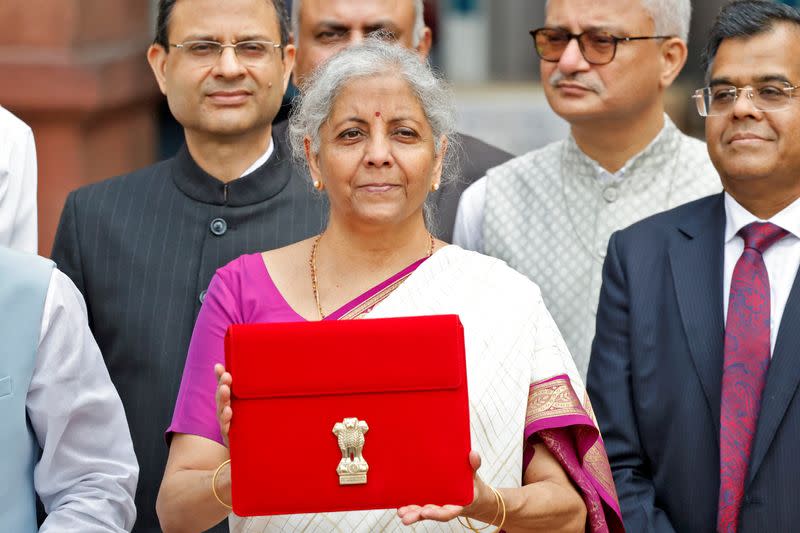India focuses on job creation, rural areas in first budget after election

By Sarita Chaganti Singh and Nikunj Ohri
NEW DELHI (Reuters) -India will spend $24 billion in job-spurring efforts over the next five years and boost rural spending, Finance Minister Nirmala Sitharaman said on Tuesday in the 2024/25 budget, unveiled after last month's election setback for the government.
Analysts blamed distress in rural areas and a weak job market for a poor poll showing that cost Prime Minister Narendra Modi's Bharatiya Janata Party (BJP) its absolute majority, making it dependent on allies to form a government.
The government will spend 2.66 trillion rupees ($32 billion) on rural development, Sitharaman said, while unveiling new schemes for states led by two key allies.
To spur employment, it will roll out incentives for companies, including those in manufacturing, along with programmes to improve skills and provide subsidised loans for higher education, Sitharaman added.
India's official unemployment rate in urban areas is 6.7%, but private agency the Centre For Monitoring Indian Economy pegs it higher, at 8.4%.
Government data this month showed 20 million new job opportunities generated each year since fiscal 2017-18, but private economists said self-employment and temporary farm hiring accounted for much of the figure.
India's consumer stocks rose 1.5% to a record high.
The government will also maintain spending on long-term infrastructure projects, at 11.11 trillion rupees, offering long-term loans of 1.5 trillion rupees to states to fund such expenditure.
Some of these loans will be linked to milestones reached in reform, covering areas such as land and labour, which Sitharaman said the government intended to push in its third term.
In a concession to the government's allies, Sitharaman said it would hasten loans from multilateral agencies for the eastern state of Bihar and the southern state of Andhra Pradesh.
The government plans to cut its fiscal deficit to 4.9% of gross domestic product in 2024-25, below the 5.1% figure in February's interim budget. It reduced its gross market borrowing marginally to 14.01 trillion rupees.
($1=83.6410 Indian rupees)
(Additional reporting by Aftab Ahmed; Writing by Ira Dugal; Editing by YP Rajesh and Clarence Fernandez)






